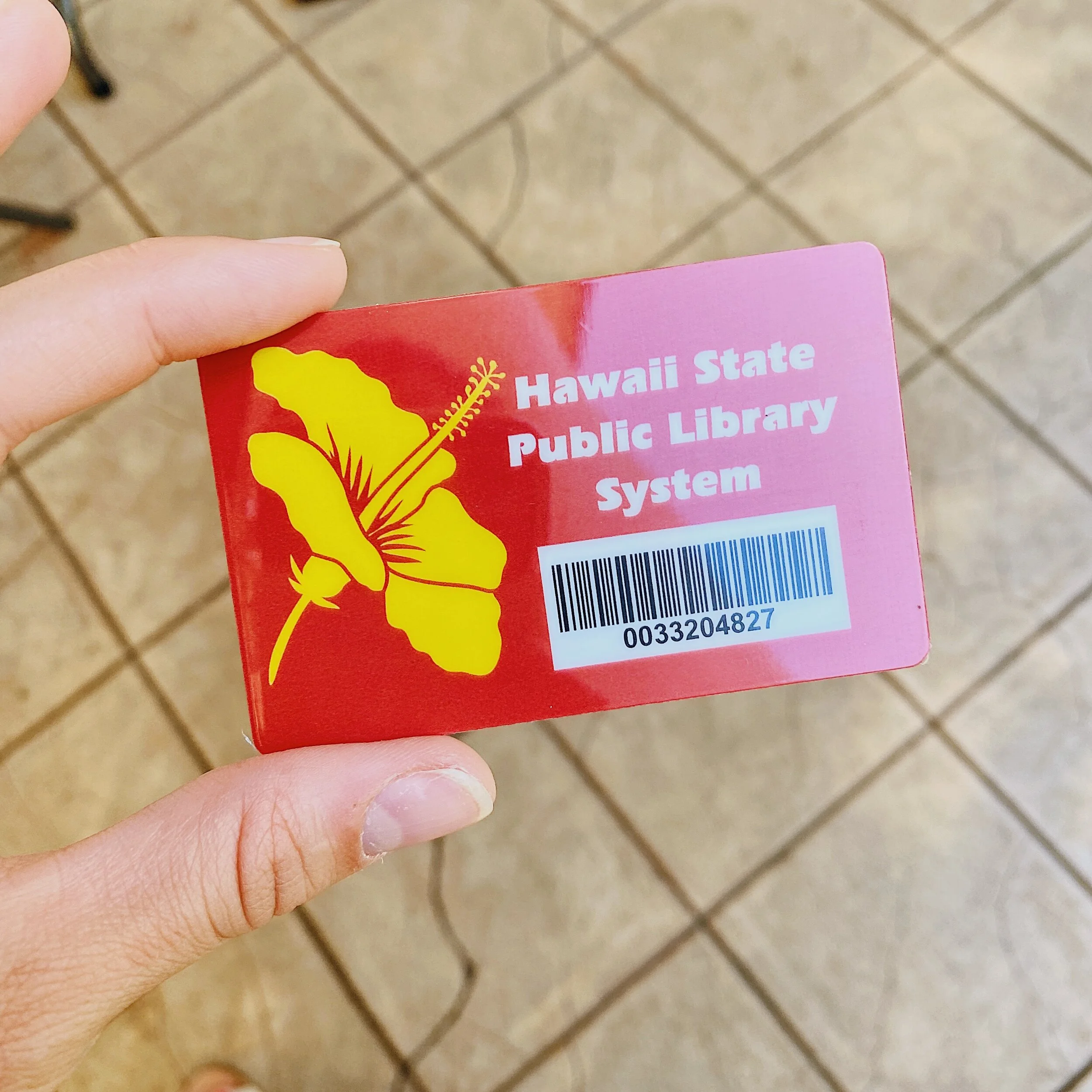A Different Kind of Passport
In 2020, while U.S. passports became all but meaningless, one card continued to let its holders travel endlessly, across the globe, back and forth in time, and even into the minds of millions of other human beings: the humble library card.
A library card is arguably more useful for traveling than any other item in your carry-on bag. It’s a passport to unknown worlds, new perspectives, and countless adventures. It’s an unlimited and renewable source of education, inspiration, and connection. Better yet, you travel for free, and your multiple journeys benefit you, your community, and the entire planet.
Why the paragraphs-long ode to library cards? 1) it’s important to me that you know I could go on much, much longer about how much I love libraries, but I’ve committed myself to a short post, so I wont and 2) I finally picked up my Hawaii state library card after getting my state ID, so the value is fresh and extra resonant today.
As you may have gleaned from my many blog posts on books, I am truly obsessed with libraries and their value to individuals and societies. They’ve been a critical lifeline to me ever since elementary school, when I needed somewhere safe to go after school while waiting for my mom to get off work. If the above little analogy hasn’t already piqued your interest, here are a number of more concrete reasons to become a regular at your own local library:
Why is it important to have a library card?
Save the planet. Libraries are one of the oldest sustainable institutions in our society. Books are purchased once and recycled between readers until they’ve been fully spent.
Save your money. While I’m a huge proponent of supporting writers and independent bookstores by buying books, it can end up becoming very costly for an avid reader. Your library card and all rentals are free. Some libraries have even completely abolished late fees.
Declutter your home. I personally plan to have a book wall in my home if and when I purchase one, but until then, books take up alot of space and are hard to move. I’m only buying these days if I know and love the book or author.
Access to ebooks and audiobooks. Most library cards afford the holder access to vast libraries of free audiobooks and ebooks, which can be downloaded to your phone or Kindle.
Support underprivileged community members. Libraries provide critical, free resources to underprivileged members of the community, including (but not limited to) internet access, children’s activities, and education for seniors. Your patronage allows libraries to secure more government funding to consistently buy more books, offer programs, and upgrade their technology.
Quietly resist capitalism. Libraries remain one of the last remaining truly free public institutions that give and ask for nothing in return. Consider where you buy most of your books from today; is it a massive online ecommerce site, by chance? If so, you’re propping up capitalism in one of its more challenging forms. Here’s a quote from anthropology student Caitlin Bennett in her 2019 essay, “Libraries Against Capitalism:”
“One could argue that libraries have become a symbol of equal access to knowledge, regardless of age, gender, race, or socioeconomic status. If capitalism flourishes through the production of social classes, public libraries subvert that process by removing some of the barriers preventing people from accessing literature and other resources. By not being profit-driven, these libraries work against a fundamental principle of capitalism.”
Are you ready to take the leap? It’s so easy to get your own library card. Here’s your 4 step plan:
Google “public library near me”
Find out what you need to submit an application (usually an ID and a piece of mail)
Go to the library to fill out an application and get your card
Start checking out books!
Are you a passionate library card holder? What do you love most about your relationship with libraries?

